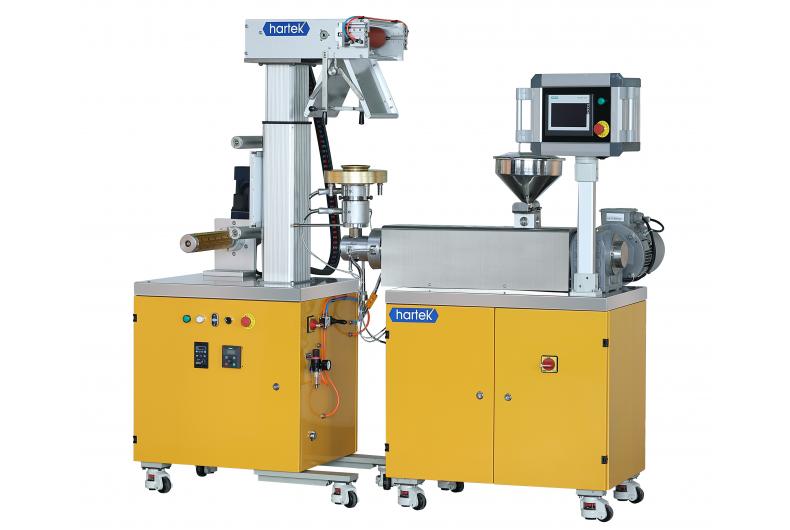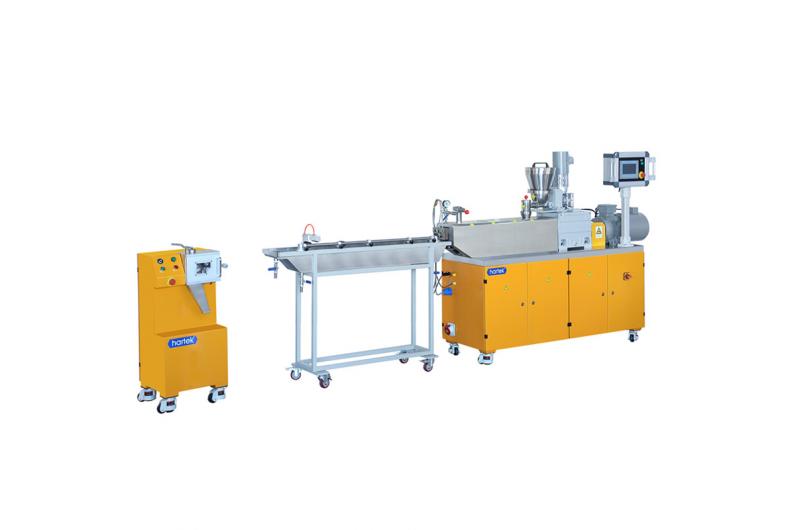What is PFA?
PFA plastic is a copolymer of a small amount of perfluoropropyl perfluorovinyl ether and polytetrafluoroethylene (PTFE). It exhibits enhanced melt adhesion and reduced melt viscosity, while its properties remain unchanged compared to PTFE. This resin can be directly processed into products using conventional thermoplastic molding methods.
Precautions for PFA Extrusion Molding Process

When the melt flow index (MFI) of PFA is greater than 3.0 g/10min, it can be processed via extrusion molding, primarily used to produce pipes, cable insulation layers, films, etc. The screw length-to-diameter (L/D) ratio for PFA extrusion is typically 20:1. The extrusion temperature is usually controlled between 330~425°C, with screw speeds set between 3~50 rpm. Due to the high melt viscosity of PFA, it has a high draw ratio during extrusion, allowing for the rapid production of smooth extrudates.
1. Crystalline material, low hygroscopicity: Can be processed into products using standard thermoplastic processing methods.
2. Poor flowability, highly prone to decomposition: Decomposition produces corrosive gases. Strictly control the molding temperature not to exceed 475°C. The mold should be heated to 150-200°C. The gating system should offer minimal resistance to material flow.
3. Semi-transparent pellets, suitable for injection molding and extrusion molding. Molding temperature range 350-400°C. Temperatures above 475°C can easily cause discoloration or bubble formation. Note that demolding can be difficult.
4. The molten material is corrosive to metals. For long-term production, molds require chrome plating treatment.
Currently, over 10 types of fluoroplastics, totaling more than 100 grades, are industrially produced and commercially available. These include tetrafluoroethylene hexafluoropropylene copolymer (FEP, Perfluorinated Ethylene Propylene), polytetrafluoroethylene (PTFE), tetrafluoroethylene perfluoroalkyl vinyl ether copolymer (PFA), polyvinylidene fluoride (PVDF), ethylene tetrafluoroethylene copolymer (ETFE), ethylene chlorotrifluoroethylene copolymer (ECTFE), polyvinyl fluoride (PVF), polychlorotrifluoroethylene (PCTFE), among others. Among these relatively expensive fluoroplastics, PFA is considered one of the most high-end in terms of its applications.
Therefore, PFA is relatively expensive. It is often processed using laboratory-scale extrusion-calendering machines to prepare sheet samples. This method uses less material, offers high precision, and is used to adjust process parameters, aiding formulation development. This improves efficiency and shortens the R&D cycle. The Guangzhou Hartek Desktop Small Single-Screw Extrusion Calender is suitable for sheet sampling of materials like PVC, PLA, PE, PA, PS, PEI, PPS, PFA, etc. It is used for the preparation of various material sheets, material formulation R&D, and process parameter optimization.

Features of Desktop Small Single Screw Extruder Calender:
* Equipped with guide rail sliders for convenient front-back movement adjustment.
* Safety protection device: Includes a dedicated protective cover.
* Each driven roller is independently driven by a servo motor, ensuring precise speed control and wide process adjustability.
* Number of calender rolls: 3.
* Roll face width: 220mm. Roll surface is chrome-plated for a super-mirror finish (high durability).
* Multiple temperature control zones for the screw and barrel. Rolls have internal flow channels for more comprehensive and precise temperature control.
Guangzhou Hartek specializes in customizing high-temperature-resistant and corrosion-resistant laboratory equipment tailored to the processing characteristics of fluoroplastics. This includes sheet calendering test machines, film casting machines, small-scale pipe extruders, and small-scale 3D filament extruders.




